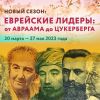Last week, Booknik read a Polish crime novel, a novel about an abyss, short stories about love, and a monograph about the Russian queen. He also spoke with Angel Wagenstein, analyzed a piyut, expected a Felix Nussbaum exhibition, counted out the Jewish time, danced, worked at a machinery plant in Baku, studied the history of the First Zionist Congress, learned some L-words, explored aftertaste and silverware, and trained to school unruly kids. Booknik Jr. who is far from being unruly himself, celebrated Rosh Hashanah and, therefore, ate some lekach, felt deeply about soap, and read something from a fine Odessa poet.
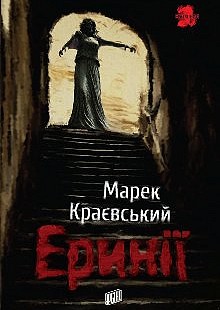
Erynie, by Marek Krajewski
Mr. Krajewski is often called “Polish Akunin.” These two authors have many things in common, for both of them started as philologists, both of them write popular historical crime fiction, and both of them created unforgettable and unique characters. Nevertheless, the refined beau Erast Fandorin looks like a total antagonist of the brutal and cynical police counselor Eberhard Mock, and Krajewski’s style features extravagant and graphically depicted murders, maniacal villains, and nightmare-obsessed sleuths. Booknik’s reviewer Lesya Bobrova reads the historical crime novel about Lvov that is no more there.
You Weren’t Wrong to Be Afraid of My Love
Ravings of Love, by Alla Bossart
Do you know who the horse governor is, or what the Rhine undines sing at night about? The “Novaya Gazeta” columnist and author of this book Alla Bossart does. Her book turned out well, with 21 stories, all of them about love. However, the love is strange there, if not outright scary. It is daring and raving, it brings illness and death, personality disorders and material losses. It is a kind of Dostoyevskian love. Booknik reviewer Irina Zeltzman reads about love, and she is seriously afraid.
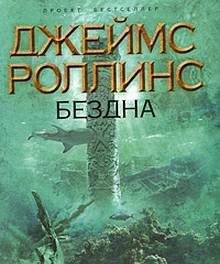
Deep Fathom, by James Rollins
In this novel, from the depths of Oceania there rises a city built twelve thousand years ago, they find a crystal column with mysterious qualities, and all this happens during an eclipse, an earthquake, and right before another nuclear holocaust. James Rollins does not do anything special to the global mythology, however he elegantly combines the Flood, nuclear physics, Noah’s ark, and dark matter. It’s a bit predictable and very Hollywood-ish, for the good guys don’t die, the bad guys don’t win, Mexicans, Indians and other oppressed nations play on a level with the whites, the Navy admiral is a Jew, and the president is a peacemaker. But the reader hasn’t come to buy all this, he is tickled by the author’s attempt to unite all nations of the Earth in their search for an ancient culture that had left us its wisdom and wealth. Booknik’s expert in intercultural communication Masha Tuuborg reads Deep Fathom.
Russia Before the Jewish Issue
Aphrodite in Power. Elizaveta Petrovna’s Rule, by Yevgeny Anisimov
The life of the Russian “merry queen” has traditionally been attracting novelists and screenwriters but they have not always checked their creative impulse against historical realities. There has not been a serious work about this queen since Kazimir Valishevsky’s Elizaveta Petrovna published in 1902. In Russian, only one her biography is available. Now, Booknik reviewer Yevgeny Levin reads the new book by the historian Yevgeny Anisimov about Elizabeth of Russia, entitled Aphrodite in Power.
…and many other historical herstories in the Books & Reviews section.
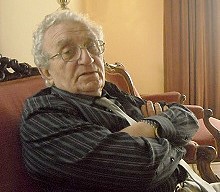
Booknik wanted this for a very long time, and, finally, he interviewed Angel Wagenstein, the Jewish-Bulgarian author, screenwriter, director, and, sorry, public figure. Booknik’s contributing editor Anna Shkolnik spoke with Mr. Wagenstein about his triptych, among other things, that includes Isaac's Torah, Farewell, Shanghai, and Far from Toledo. It has already been published in many languages but in Russian it’s still kind of non-existent (yet we hope to see it soon, in full). Here is the excerpt from the first novel of the triptych.
Sheep or Warriors? On the Piyut Unetanneh Tokef and Its Secret Meanings
The second paragraph of the Unetanneh Tokef piyut, the one that has the famous line “who by fire, who by water,” starts with: “All mankind will pass before You like kivney maron.” These mysterious kivney maron are understood differently, like “dwellers in heaven,” camels, sheep, and even Roman legionnaires. Booknik contributors Yevgeny Levin and Masha Tuuborg tell about the piyut’s interpretations.
…and many other secret integrations in the Articles & Interviews section.
The Dialogue That Is Not. Notes on the Days of Jewish Culture in Spain
We have a couple of hundred of reports on the Days of Jewish Culture in different spots throughout the native land of Salvador Dali, corrida, sangria, and paella. Every one of the 30 participating cities found something to show and tell tourists, and local public about Jewish ruins, arts and crafts, cuisine, documentary cinema, and books. The Days of Jewish Culture are very popular but the polls show that Spain is still the most anti-Semitic country in Europe. Booknik’s contributing editor Anna Shkolnik tries to reconcile these two facts, with some success.
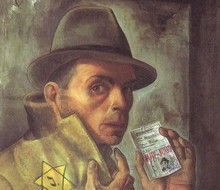
One can not see executioners on the paintings by Felix Nussbaum, for the artist seemed not to have paid them any attention. There are only victims there. His wife, his niece, his brother, and his comrades in misery. The people stand there in front of a crumpled globe on a crooked box, entwined with barbed wire, where there are no continents. Those people don’t have a different planet. Booknik’s French reporter Kira Sapgir tells about the dead artist whose work survived, contrary to all laws of injustice.
The Most Precise Jewish Time
Watchmakers rarely adapt cogs and wheels of their creations for the Jewish calendar. Two fingers would be enough to enumerate their successes, and those rarae aves of the watchmakers’ art should really be scrutinized. The master Konstantin Chaykin from Saint Petersburg has recently started his major project of “Judean mechanics.” He has already made two timepieces that do not count out minutes and seconds, but tick out some shorter intervals of time. Booknik reporter Halina Kovalchuk tells about the complicated Jewish time.
…and many other timeless timers in the Events & Reports section.
Shall We Dance? 15 Facts About Jewish Dances
It is widely known that dancing is a magic act. One could create worlds through dancing, or destroy their inhabitants. Booknik contributors Marina Karpova and Yevgeny Levin find evidence of this in the world literature, and share other facts about Jewish dances.
…and many other waltzing matildas in the Columns & Columns section.
Some Days in the Life of a Young Female Specialist Continued
…There was a time when I had to check the construction of a mechanical hybrid, a mowing-machine-cum-grain-binder that was proudly named “an autonomous welding unit.” In the process, I was approached by a young man who only stared at me. I was deep in blueprints so I only nodded my head. Finally, the man opened his mouth, and said in broken Russian, “Why do you, woman, give orders to a man?” Booknik contributor Keren Pevzner tells about feminism blooming at a machinery plant in Baku.
…and many other famous groupies in the Stories & Essays section.
At Basel, I Founded the Jewish State
Summing up his impressions of the First Zionist Congress, Theodor Herzl wrote in his diary, “At Basel, I founded the Jewish State.” Let us remember what else we know about the historic event. Is it true that participating women and non-Jews could not vote there? Were the men in tails? Did the Turkish sultan really promised Herzl to facilitate his colonizing Palestine?
…and many other founding fathers in the Contests & Quizzes section.
A Flickering Jew 1: Jews in Soviet Cinema
Booknik launches a series of video shorts on Jews in Soviet cinema. Author and film critic who is also our fearless editor-in-chief Sergey Kuznetsov will watch old films with us, and tell us something about what we see there. The first episode is about The Jewish Happiness, an Yiddish lullaby, and why the Jew flickers.
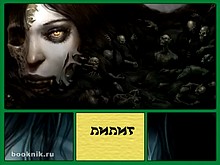
What is the difference between the Ladino and the Djudezmo? Whose headstones depict a jug? What should one do if one’s kid laughs in his or her sleep? Watch our Hebrarium, and our whiz kid Kirill Chichayev will tell you everything about excellent new L-words.
The History of Israel in Hebrew 28: Barack Barach
Aftertaste, that’s what public figures are afraid of. No proof, argument or excuse will ultimately save one’s reputation. Voters will remember an ugly story no matter what. There’s aftertaste even if they ultimately find the silver, as they say. Our talking head Arkan Kariv tells a new illuminating story.
…and many other educational flicks in the Video Blog section.

You know that on Rosh Hashanah, Jews eat honey with challah and apples, and wish each other Sweet New year. Honey is added to other dishes, too, to make sure that it works. They can make a tzimmes or a chicken in sweet sauce. They also make honey cake, a lekach. Booknik Jr. was well prepared for Rosh Hashanah because Yelizaveta Guller taught him to make it just in time.
Soap Also Cries
The Soap Cried Bitterly, by Miriam Yalan-Stekelis
In every language, there must be poems and stories about slobs ‘cause every normal boy (or even some girls) will find a thousand reasons not to wash his (or her) face, ears, and neck, and not to brush his (well, whatever) teeth no matter where he lives, in Russia, France or the U.S. Who wants to spend the best years of his life in a bathroom, accompanied only by a bar of soap, and a revolting fluffy towel? Yelizaveta Guller reads real poetry about the importance of (surprise!) washing.
Rosh Hashanah
Rosh Hashanah is frequently called the Jewish New Year. This is the occasion for thinking about the past, promising something good in the future or wishing something even better to yourself and your friends, and relatives. However we celebrate not only the beginning of a next year on this day but the beginning of the world, and the birth of a man. Before the holiday, Zhenya Lopatnik explained all those details to our not-especially-grown-up readers.
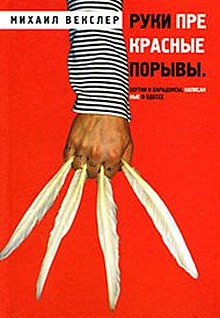
Mikhail Wexler was born in Odessa, and he still lives there. After this short foreword you may easily start reading his poetry ‘cause all the rest you will find in his poems. To live in Odessa means to know all the time what happens to the language that is set free, and it sails wherever it wants. Some words and letters are right on the deck, and you may slip on them occasionally, and fly overboard. Fun, isn’t it? Mikhail Yasnov presents the children’s childish poetry by Mikhail Wexler.
The Fury and the Sound
The Explosive Child: A New Approach for Understanding and Parenting Easily Frustrated, Chronically Inflexible Children, by Ross Greene
What does “an explosive child” mean, and how to fight him? what should his parents do about it? How could they survive control his emotional outbursts? Maria Gitman reads the book by the child psychologist Ross Greene, and comes to certain conclusions.
…and much other unruly fun at Booknik Jr., also known as Family Booknik, our own web site for kids and their parents.
Repeat until insane. Booknik and Family Booknik are supported by the AVI CHAI Foundation. As usual.









